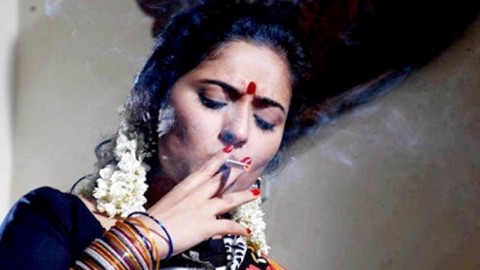
There are things that women should and should not do. There are experiences that women should and should not get involved in while their male counterparts have these restrictions socially waived. Who decides the gender of roles, actions and experiences?
“Joy” is no exception to this list of experiences that place restrictions on Tamil women. Social rules pick and choose what categories of human enjoyment Tamil women can take part in, and what women can openly enjoy and express without having disapproving and judgmental stares thrown their way.
Starting with something as common as smoking cigarettes, the Tamil community is far more approving when men smoke than when women smoke. When a man smokes it is completely overlooked. However, if a woman happens to smoke, the stigma that surrounds it is so powerful that slander and defamation will be spread. It is as if only men are entitled to whatever joy that cigarette smoking permits them, and women engaging in the same activity are perceived as “ineligible” members of the community.

Even some men of the younger generation carry forward the same mentality, and tend to phrase it as “unattractive” if certain deeds are committed by women. However, no comments are made when the same behaviour is done by men.
For those who are concerned, this argument is put forth not to encourage cigarette smoking, but to question the distorted perception of the act of smoking by different sexes. If smoking is detrimental to women’s health, is it not detrimental to men’s health as well? And if it is fine for men to indulge in that activity, what is it that should make women refrain from it?
At this point, are we caring about women? Or are we simply using the tool of social approval to constrain what women can choose to do? It should be safe to say that this is a way of creating that imbalance and reasserting male dominance throughout the Tamil community. Dominance established by asserting privileges and self-righteousness.
These privileges simply do not stop at smoking. It stretches further into drinking as well, and poses a greater dilemma for Tamil women than smoking. To drink or not to drink. To be judged or not to be judged. While all young Tamils are placed under scrutiny when it comes to drinking, boys and men get away with it much easier than girls and women. In fact, questioning boys comes to an end at some point – the point at which he is recognized as a man. But scrutinizing for girls continues, even after they become women.

When a Tamil girl or a woman is found drinking – even if it is just a sip of champagne at a cousin’s wedding – why is it scrutinized? Even if it is a sip of sparkling water that happens to appear like sparkling wine, the level of bad-mouthing is unthinkable. Shaming and spreading rumours about that girl would be of the utmost priority for the uncles and aunts for days to come. She will be labelled as one with bad character regardless of her true personality. These character descriptions are certain to be decorated even further within the imaginations of Tamil uncles and aunts.
However, the rumour-spreading is much more toned down or even non-existent in the case of young Tamil men. On the contrary, young men are actually offered and invited to drink along with everyone else. The question raised here is, how is the very same activity committed by one sex considered simply a joyful act, and when committed by the other sex considered a shameful act defining bad character? Does this mean joy is gendered? And that women are not entitled to these certain amusements?
Such ideas are more prevalent in the older generation, mostly among Tamil parents, and less so in the younger generation. Tamil dads and uncles drink as they wish and feel as though they are ineligible for any embarrassment on cultural and traditional grounds. Yet Tamil men and women are quick to nominate women to the stage of shame if anyone happens to witness a Tamil mom or aunt drink. She will be shamed thereafter by her social circle.
This is not to say that the younger generation is completely devoid of such a mentality. Even though it doesn’t carry the same starkness, girls who drink or go out to party are judged far more than their male counterparts by a considerable bulk of their peers. There is a common view that girls who abstain from these activities tend to be of good character, as to imply that women who indulge in such “vices” could only be of bad character simply based on their sex.
These rules apply further to partying, clubbing, going away for a night or on a vacation with friends, and even sleepovers. In most cases, the struggle to bring your parents to the point of acceptance is long and painful. Even after earning a “yes”, it is still not enough to escape continuous surveillance as parents keep checking up to ensure you do not indulge in the aforementioned activities and still follow the curfew at home.

Such restrictions and parental routines are put in place to ensure the safety of daughters. However, there is significantly higher emphasis placed for girls than for boys. Why worry so much about one gender and not so much the other?
There are two possible reasons. One is safety: the fact that we view boys as a threat for girls, and the mentality that boys won’t be in danger as we feel that girls won’t be able to hurt boys. The second reason is that very unhealthy images are carved into our minds as early as when we are toddlers. Teaching girls that boys are dangerous from a young age creates a not so healthy image of their male counterparts. But on top of creating a negative image of males, it also influences girls from a young age to think of themselves as the weaker sex.
Boys, in a similar fashion, are taught from a young age that their sex is potentially a dangerous or harmful one, moulding their thought of themselves as the stronger sex. This gives some young men social sanction to be "dangerous" since they are already perceived that way by society, and they’re not doing anything that is “taboo”. To support all of this there is the saying “boys will be boys”.
The second reason to worry so much about girls is family honour. Tamils believe that girls indulging in these activities will erode the family honour as Tamil girls are to be quiet, humble, well-behaved and honourable. The onus is on them to sustain a respectable family. But boys will be boys, and there is no parenting or disciplining that is capable of questioning their joy.
Why doesn’t the Tamil community seek honour through boys as much as they do through girls? Why are they excused so easily? Does this mean that their supposed bad behaviour does not affect the family nor is harmful in any way, and is not symbolic of bad parenting? Males are perceived as the free and joy deserving gender, while females are perceived as the bearer of honour and responsibilities of a family, thus prohibiting other sources of joy.

It is important to understand that it is such social imbalance that helps some men develop a self-righteous mentality that falls within a range of something minor such as a domestic problem to a major, dangerous social problem such as the Delhi bus rape case in December 2012. Before I bring myself back to topic, I would like to remind everyone that watching the interviews of the perpetrators of this rape case can make us understand how far culture and its gender roles had played a role in these men feeling righteousness and entitlement over the act and their victim.
The problem with our community is that parents spend excessive amounts of time and effort trying to protect their daughters by cutting down on their enjoyment, instead of spending an equal amount of time teaching their sons how to have fun responsibly and be a safe member of our society.
What is surprising in this practice of gendered joy-division – besides men believing in their sole entitlement to certain privileges – is that even a large number of Tamil women believe in this practice, and feel that it shouldn’t be questioned.
Cultures and traditions should be respected, but should we do so unconditionally? This is not to say that everyone should indulge in all of the activities listed in this article, as it is an individual choice as to what people want to practice. Regardless, should we have these disproportionate barriers in front of us?
All genders should have the same options and individuals can choose whether or not to exercise those options. It is about time that we use educated means on which to base our perceptions and social rules rather than blindly follow traditional biases.
Related articles: Double Standards… Say What Now? The Good Girl Complex The Making and Breaking of Tamil Women

























